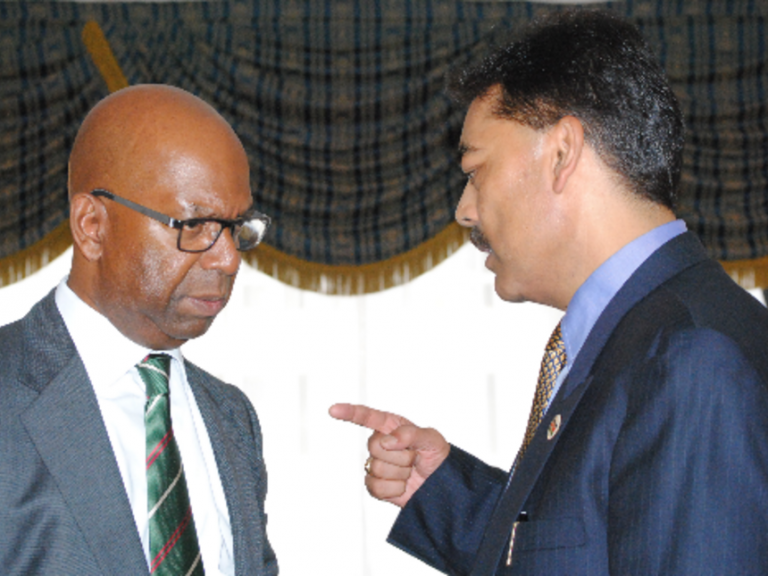
On November 4, the National Super Alliance (Nasa) asked their supporters to boycott products from three leading Kenyan companies, Brookside, Safaricom and Bidco. The opposition coalition accused these three firms of ‘perpetrating electoral injustices’!. This is contrary to the situation 10 years ago when the private sector played a key role is facilitating dialogue between opposing political groups of Party of National Unity (PNU) and Orange Democratic Movement (ODM) which brought an end to Kenya’s worst post election violence and formation of the coalition government.
Since Nasa made their pronouncement, the business fraternity and the general Kenyan consumers have been left wondering the basis in which the three companies were singled out. To begin with, Safaricom was accused of transmitting ‘doctored’ election results in the presidential election held on August 8 2017. The opposition, though, failed to table any evidence showing that Safaricom had conspired to transmit flawed results at the Supreme Court, or publicly before the media. Brookside on the other hand was accused of supporting the Jubilee government. The obvious fact, though, is that Brookside was singled out because it is owned by the Kenyatta family.
Read: Kenya improves in World Bank’s Ease of Doing Business index
The biggest question, though, is why Bidco Africa was singled out. Could it be that Bidco was targeted because of its Chief Executive Officer Vimal Shah’s role in business advocacy in the country and particularly because of his role as a past chairman of the Kenya Private Sector Alliance (KEPSA)?
Private sector and devolution
Mr. Shah was first elected as the KEPSA chairman in April 2013 while serving as the chairman of Kenya Manufacturers Association (KMA). He succeeded Eng. Patrick Obath who served as KEPSA chair for two years, with Mr. Shah serving as his deputy. While electing Mr. Shah to this position, KEPSA also launched the National Business Agenda II. This was a blue-print that formed the basis of advocacy to improve the business environment in the private sector over the next five years to 2017.
With devolved governments coming into play, Mr. Shah assumed the chairmanship of KEPSA at a time when the private sector was seeking ways of tapping investment opportunities in the devolved units. Indeed, over this period, KEPSA has been central in obtaining investment pledges that have been made over the last five years in multiple county investment fora. These counties have been made in various counties across the country regardless of their political persuasion. “This means that the main business for either KEPSA or the KEPSA chair has not been to subjugate the political alignment of any region, but to ensure that local businesses have access to business opportunities across the political divide,” says financial analyst, Eliud Okoth.
Conducive environment for business
Granted that a hostile political environment is a hindrance to investments and businesses, the private sector has consistently over the years advocated for socially and politically conducive business environments. The call for peace or stability for the sake of investments and businesses, though, is neither an endorsement of a present regime nor a castigation of the opposition.

In 2014, for example, Mr. Shah, leading the Kenya Private Sector Alliance had acknowledged that while Kenya was facing a raft of socio-economic changes, there was a need for all political, social and economic players to engage using alternative avenues as opposed to chaotic demonstrations by the opposition and counter-demonstrations by pro-government supporters that not only further polarized the country, but put off potential investors.
In 2016, KEPSA cautioned that just like many previous elections, the 2017 General Elections would see a slowdown in investments, especially if the political environment turned hostile. “It is just another election but the impact of an election is so important. To the public, it is a time to slow down,” said Mr. Shah, adding that there was a need for the public and private sector players to ensure that there economic stability prevailed. “This was an acknowledgment that businesses bleed the same way regardless of their owners’ social, economic or political affiliation,” says Mr. Okoth. Certainly, this measure of caution may not have augured well with the Coalition for Reforms and Democracy (CORD), which at the time was holding weekly demonstrations at Nairobi’s Central Business District calling for the removal of the Independent Electoral and Boundaries Commission (IEBC) commissioners.





